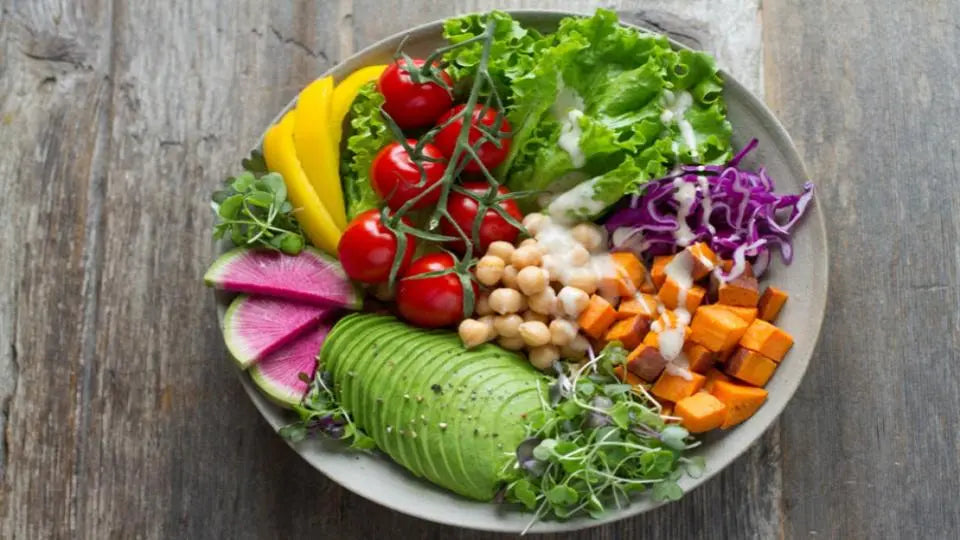
The Beginner's Guide to Veganism: How to Start Your Journey
The Beginner's Guide to Veganism: How to Start Your Journey
Embarking on a journey towards veganism is not just a dietary change; it's a lifestyle transformation that encompasses compassion, health, and environmental consciousness. If you're considering making the switch to a vegan lifestyle, you're in the right place. In this beginner's guide, we'll take you through the essentials of veganism, helping you navigate this transformative path with ease.
Understanding the Basics of Veganism
Veganism Defined: At its core, veganism is a lifestyle that abstains from using animal products for food, clothing, or any other purpose. Vegans choose plant-based alternatives, promoting a cruelty-free and sustainable way of living.
Health Benefits: Adopting a vegan diet can lead to various health benefits, including lower cholesterol, reduced risk of heart diseases, and improved digestion. Plant-based diets are naturally rich in essential vitamins, minerals, and antioxidants.
Transitioning to a Vegan Diet
Start Slow: Transitioning to a vegan diet doesn't have to happen overnight. Begin by incorporating more fruits, vegetables, legumes, and whole grains into your meals. Gradually phase out meat, dairy, and other animal products.
Explore Vegan Recipes: The internet is a treasure trove of delicious vegan recipes. Experimenting with diverse plant-based dishes can make your transition exciting and enjoyable.
Navigating Vegan Grocery Shopping
Read Labels: When you're shopping for vegan products, reading labels is crucial. Look out for ingredients like milk powder, gelatin, and certain food colorings, which might not be vegan-friendly.
Discover Plant-Based Alternatives: Nowadays, there are vegan alternatives for almost every animal product imaginable, from almond milk and tofu to plant-based burgers and vegan cheese. These alternatives make transitioning easier and more delicious.
Embracing the Vegan Lifestyle Beyond Food
Cruelty-Free Living: Veganism extends beyond diet. Opt for cruelty-free cosmetics and household products. Many companies now proudly display a cruelty-free logo, indicating their products are not tested on animals.
Educate Yourself: Stay informed about veganism, animal rights, and environmental issues. Knowledge empowers you to make conscious choices and advocate for a compassionate world.
Overcoming Challenges
Social Situations: Eating out or attending social gatherings can be challenging as a vegan. Plan ahead by checking restaurant menus in advance or offering to bring a vegan dish to share. Most restaurants are accommodating to dietary preferences nowadays.
Dealing with Criticism: Some people might not understand your choice to go vegan. Be patient and compassionate in your conversations. Share your journey and the reasons behind your choices, but respect others' perspectives as well.
Embracing Veganism in Everyday Life
Join a Supportive Community: Being part of a community of like-minded individuals can provide invaluable support. Whether it's joining local vegan meet-ups, online forums, or social media groups, connecting with others can offer encouragement, shared experiences, and new friendships.
Cooking and Meal Prepping: Learning to cook vegan meals is an essential skill. Invest in a good vegan cookbook or explore online cooking tutorials. Meal prepping can save time and ensure you always have delicious, plant-based options readily available.
The Environmental Impact of Veganism
Reducing Your Carbon Footprint: Animal agriculture is a leading cause of greenhouse gas emissions. By choosing plant-based options, you're actively contributing to reducing your carbon footprint, helping combat climate change.
Conserving Water: Livestock farming consumes vast amounts of water. Shifting to a plant-based diet conserves water resources, making it an eco-conscious choice.
Veganism and Ethical Considerations
Animal Welfare: Veganism is rooted in compassion for animals. By abstaining from animal products, you're taking a stand against animal cruelty and supporting a more humane world.
Ethical Fashion: Leather, fur, and other animal-based fabrics are prevalent in the fashion industry. Explore ethical fashion brands that offer stylish alternatives made from sustainable materials.
Maintaining a Balanced Vegan Diet
Diverse Nutrient Sources: To ensure you get all the essential nutrients, consume a variety of fruits, vegetables, grains, nuts, and seeds. Supplements like vitamin B12 are often recommended for vegans.
Consulting a Nutritionist: If you have specific dietary concerns or health conditions, consulting a nutritionist or healthcare professional familiar with veganism can provide tailored advice.
Spreading Awareness
Lead by Example: Your journey as a vegan can inspire others. Lead by example, share your story, and educate others about the benefits of veganism. Every conversation can plant a seed of change.
My Final Thoughts
Embarking on the vegan journey is not just a personal choice; it's a powerful statement about your values, ethics, and care for the planet. Remember, transitioning to veganism is a process. Be patient with yourself, celebrate your successes, and learn from challenges. By choosing compassion over cruelty, you're not just changing your life; you're contributing to a kinder, more sustainable world for all living beings.
So, embrace this exciting journey with an open heart and a curious mind. Your decision to go vegan is a step towards a future where both humans and animals coexist harmoniously, and our planet thrives in balance. Happy vegan adventures!


